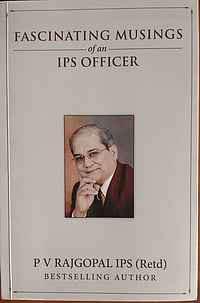Jacob Jeremiah Sullivan, the new National Security Adviser to President Joe Biden spoke to Afghan NSA Hamdullah Mohib on January 22 assuring him of US commitment to the Afghan peace process. He also told him that the White House would like to review the February 2020 U.S.-Taliban agreement, to assess “whether the Taliban was living up to its commitments to cut ties with terrorist groups, to reduce violence in Afghanistan”. This review would include consultations with Afghan government, NATO allies and regional partners to evolve “a collective strategy” for supporting a stable and sovereign Afghanistan.
Sullivan’s special mention of US support for “protecting the extraordinary gains made by Afghan women, girls, and minority groups as part of the peace process” assumes special significance as a policy priority. On October 6, 1999, the then US Secretary of State Madeleine Albright had effected a sudden change of course of US diplomacy towards Taliban through her strong denunciation of the extremist group that it was dragging Afghan women back to the 13th Century. The earlier period of bonhomie with Taliban on oil interests was called by Washington Post (Nov 5, 2001) as a “decade of vexing relations”. During that period the annual State Department’s list of terrorism sponsoring nations did not include the Taliban ruled Afghanistan although it was harbouring Osama bin Laden. That was also the period when the US regional policy was closely aligned with Pakistan.
In September 2020 it was again Pakistan which had re-energized Trump’s Special Envoy Zalmay Khalilzad’s Afghan- Taliban peace talks, which was hobbling after signing the “landmark” agreement with America in February 2020. The Trump administration was then having discreet talks with Pakistan to make the Doha accord work. Much to our dismay, that was the reason why President Trump did not name Pakistan for being involved in terrorism against India during his visit to Motera in Gujarat and New Delhi in February 2020. Also, in September 2020 Pakistan Prime Minister Imran Khan had assured US that the peace treaty would economically “connect the entire region all the way up to Central Asia”.
Significantly, this process was going on despite the warning by the Council on Foreign Relations on March 11, 2020 that the Taliban had “withstood” counter-insurgency operations by three US Administrations and had killed 2,400 US soldiers and 1,100 NATO troops. During the past five years it had killed 43,000 civilians and 45,000 Afghan troops and police officers.
Five days before Biden administration assumed power, Amrullah Saleh, Afghan Vice-President said that US had conceded “too much to the Taliban”. Saleh, who was a former intelligence chief, belongs to the “Northern Alliance” established by the legendary Ahmad Shah Massoud who was assassinated by al-Qaeda with Taliban help, on September 9, 2001. He told the BBC that US delegation had pressured the Afghan government to release 5,000 Afghan prisoners although they had warned that violence would spike. “Violence has spiked” since then, he said.
How would Biden administration review the progress? Would they appoint an interlocutor as Obama government had done? Would they leave it only to the State Department? Or would they fine-tune Zalmay Khalilzad’s efforts? Would they continue military operations to “soften” the Taliban to pave way for political negotiations, which did not work earlier? Would they consult the different components of the divided government in Kabul?
Past experience has proved that the appointment of a very senior, high profile but blunt interlocutor like the late Richard Holbrooke (2009-2010) did not serve the purpose of bringing peace. Papers published by veteran New York Times journalist David Rohde on July 13, 2017, and by Holbrooke’s former aide Barnett Rubin on February 26, 2020, indicate that fact. Rohde, who had the strange experience of being kidnapped by the Serbs in 1995 and by the Taliban in 2008 and saved on both occasions by Holbrooke says that Pakistan despised the latter’s expression of “Af-Pak”, which has come to stay in the diplomatic lexicon. He had also annoyed Karzai by his blunt talk.
Biden administration should realize that Pakistan’s strategic aim of installing a Taliban controlled government in Kabul is only to destabilize India, irrespective of whichever political affiliation may be ruling New Delhi.
[The writer is a former Special Secretary, Cabinet Secretariat]

























